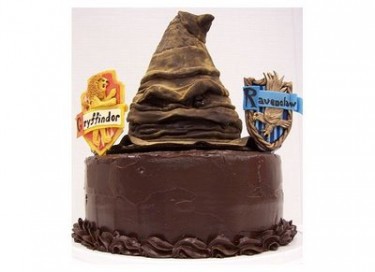‘Pin Picks: Second Helpings

Well, last week our first lucky commenter was told to read Zadie Smith’s On Beauty. She, of course, had ALREADY read and enjoyed it, because that’s how this works.
We also learned that everyone loves juicy literary gossip, and not everyone likes Lucky Jim, probably because they just haven’t tried hard enough, and not necessarily because of a deep moral failing. Not necessarily.
This week’s honoree, the always lovely Scandyhoovian, was selected for a) being roughly the second person to submit her list, and b) well, let’s go to the list, shall we?
1. The Lord of the Rings, JRR Tolkien — Tolkien is so wonderful that I’m almost at a loss when it appears on your lists. What can I FORETELL from a fondness for Tolkien? That you are human? It could either mean a wistful, pastoral kind of longing, or a Uruk-hai fondness for gore, or that you like books where the horses have names, or that you smoked a lot of pot in high school, or even that you admired Tolkien for telling the Nazis to bug off (and excused him for the whole dark/light/savage men thing.) Or perhaps you are an ardent monarchist? Let’s face it: any true proponent of democracy would probably get pissy about Denethor and the stewards hanging around for hundreds of years waiting for Isildur’s heir to quit mooning about the countryside learning to tell weeds apart. Let’s just put it to a vote, guys! Tangent, okay. Based on your other choices, you like journeys and myth and fantasy and Epic.
2. A Tree Grows in Brooklyn, Betty Smith — Oh, really? Gosh, hm, I’ve never known this book to resonate with quiet, bookish girls, or loud, gregarious women who used to be quiet, bookish girls. It’s not like it’s…that great. It’s not a perfect book, or anything. The fishing trip? Francie pretending to live in the better school district? Airshafts? Getting the same two books out of the library every time? The old guy with the gross feet? At the end, when Kate marries the nice cop with the (dead) sickly wife and finally has a checkbook that corresponds to a bank account? (weep) No, really, though, you’re making me want to give you a bildungsroman.
3. The Last Unicorn, Peter Beagle — Okay, I’m going to level with you and admit that I did not read this book. I didn’t. I had a crying meltdown at a sleepover after WATCHING The Last Unicorn, followed by a second crying meltdown in the privacy of my own home about two years later, having mistakenly believed I was now mature enough not to think that horrible burning red bull thing was going to come through my window and kill me/push me into the sea. But, because I want to engage in due diligence, I have just purchased Beagle’s novel in order to further my literary wisdom. I already feel comfortable making my selection for Scandyhoovian, as The Last Unicorn furthers the “childhood/mysticism/archetypes/boys becoming men/men becoming wolves” vibe I’m getting here. It’s a good vibe.
OKAY, it’s very clear. Very clear. The Deptford Trilogy, by Robertson Davies. CanLit IN YOUR FACE.
Look, don’t just blindly take my word for it. Buy/steal/borrow Fifth Business first. 80% of the perfection of The Deptford Trilogy is right there in the first volume. Promise.
Myth! Men! War! Fools! Saints! The stories we tell ourselves in order to LIVE. ARGH. So, you’ve got the “middle-aged narrator casting back to the childhood moment that shaped his life and his closest male friendship and why they took different paths” thing, right, which is basically Mystic River, except it does not involve child sexual abuse and is BRILLIANT instead of…okay. And you’ve got Davies, the best kind of sort-of-pedantic academic who seeds his speech with random allusions and doesn’t always understand women, but then writes these incredible, incredible books that Wrath of Khan-earwig themselves into your brain.
Davies, in our latest “anecdotes from literary readings” installment, once said to a woman who started blathering about how she “always thought she might make a great novelist”: “Madam, if you were meant to be any kind of writer, you would cheerfully slay your children and write in their blood.”
And then you can go on to the next two volumes, which involve both diarrhea and classic Jungian analysis, so who could regret that?
So, there you are. Read.